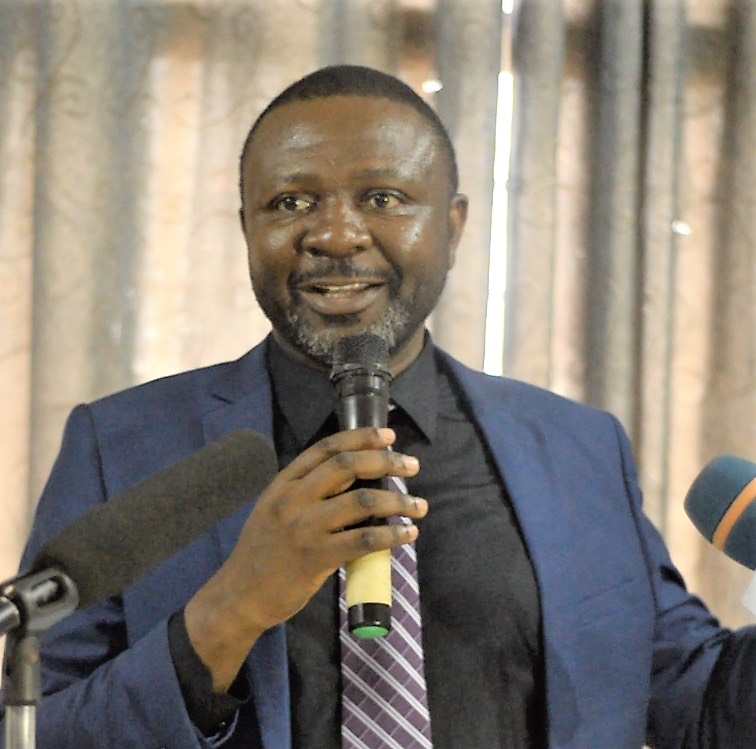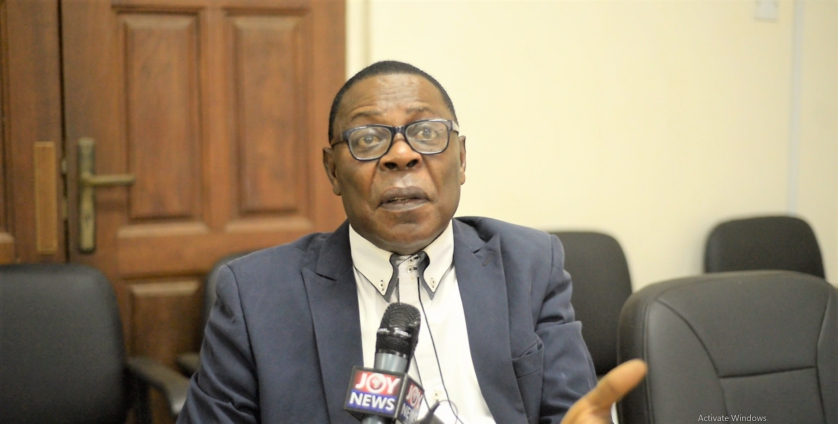Associate Professor of Finance at Andrews University, Michigan, USA, Prof. Williams Kwasi Peprah, says Ghana’s thirty-six month extended credit facility deal with the International Monetary Fund (IMF) is not enough to make any significant economic impact.
He says the conditionality and policy demands from the IMF to mitigate Ghana’s fiscal and debt vulnerabilities are drastic and demand a long-term approach.
According to him, a five-to-seven-year fiscal programme is viable for an effective financial turnaround.
Prof. Williams Kwasi Peprah of the Andrews University School of Business Administration was speaking at a public lecture on the IMF Bailout at the Christian Service University College in Kumasi.

The public lecture was themed: “Ghana, the Fallen Angel Shall Rise: Lessons from the IMF Bailout”.
The lecture was staged to extricate the blame that academia is quiet and not contributing its quota to national discourse.
Prof. William Kwasi Peprah asserted that the IMF deal will ensure stability and financial discipline by government.
“Every government should have a plug-in for the IMF, for them to monitor our operations. When the IMF is around like a policeman, we tend to do the right things. Especially with the documents we submit to the IMF, we are trying to be more financially disciplined. Anytime we have the IMF in our governance system, our inflation reduces, and the economy becomes stable.
“Three years will not help us solve the problem. From that date, we should have gone for a five to seven-year programme with the IMF. It appears after the IMF in three years, the government will put in another programme for the IMF to help us.
“From the document given by the government, by the time the IMF program ends, our debt-to-GDP is expected to be around 76% and that is still not financial stability. The three-year program is too short a time to see all the policies implemented. The policies are also too drastic. And within three years, we would not be able to deal with the issues fully,” he said.
The IMF extended credit facility of $3 billion was approved by the Executive Board on May 17, 2023.
The programme will support Ghana in creating conditions for inclusive and sustainable growth. Sections of Ghanaians have raised concerns about harsh conditionalities for Ghana's deal with the IMF.
Professor of Finance at the KNUST School of Business, Professor Joseph Magnus Frimpong, also said Ghana’s wasteful behavior is responsible for the seeming “harsh” conditions.
He added to the call for the government to review the free Senior High School policy.
“If a friend of yours is wasteful and wants to borrow from you, you might not give it to him. If you would, you would spell harsh conditions to ensure he can pay back. If we are not wasteful, why are we where we are?"
"Look at how wasteful we are. And it runs from the government to the individuals. And as such I don't see the solutions coming easily because we have been polarised by party politics”, he concluded.
Latest Stories
-
ECG workers threaten to disconnect power from Ashanti Regional Minister’s home
43 seconds -
Brain tumour shatters 20-year-old’s dream of becoming a doctor
8 mins -
ICDP Ghana introduces portable ultrasound machines in rural communities
18 mins -
Seven killed in sleep after Ethiopia building collapses
21 mins -
Fitch affirms ETI at B-; Outlook stable
2 hours -
Pictures: Bawumia meets Pope Francis
2 hours -
Former Bibiani GoldStars midfielder Frank Adjei Jr continues fine form in Swedish League
2 hours -
J.B. Dankwah Adu’s murder: Court orders Daniel Asiedu to open his defence
2 hours -
Marrakech 2024: Five para-athletes to represent Ghana in WPA Grand Prix in Morocco
2 hours -
U.S Senate approves bill to ban TikTok
2 hours -
T-Pain involved in hit-and-run, warns culprit he’ll find them
2 hours -
Cedi hits GH¢14.00 to a dollar; depreciates 12.08%
2 hours -
Major portions of Kasoa-Winneba road to open to traffic in 8 months
2 hours -
Delta Air Lines to fly Airbus A330-900neo on nonstop service from Accra to New York effective October 27, 2024
2 hours -
Kwadaso onion traders reject new location, express fear over future eviction
3 hours

